Life
Sign up for our newsletter
We summarize the week's scientific breakthroughs every Thursday.
- Animals
This fly’s flesh-eating maggot is making a comeback. Here’s what to know
After a decades-long hiatus, new world screwworm populations have surged in Central America and Mexico — and are inching northward.
By Carly Kay -
 Neuroscience
NeuroscienceTo decode future anxiety and depression, begin with a child’s brain
A child-friendly brain imaging technique is just one way neuroscientist Cat Camacho investigates how children learn to process emotions.
-
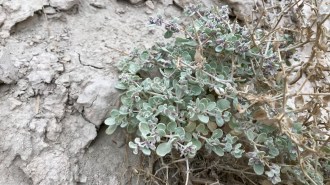 Plants
PlantsA special shape shift helps a shrub thrive in blistering heat
A microscope reveals an algae-like adaptation that might future-proof crop photosynthesis in extreme heat.
-
 Materials Science
Materials ScienceWhat causes the rainbow shimmer of ammolite gems?
Ammolite gems’ fabulous colors arise from delicate assemblies of crystal plates.
-
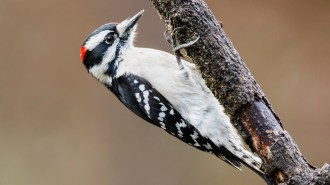 Animals
AnimalsWoodpecker hammering is a full-body affair
The birds grunt like tennis pros when generating their rat-a-tat, a performance strategy that may help stabilize core muscles.
By Anna Gibbs -
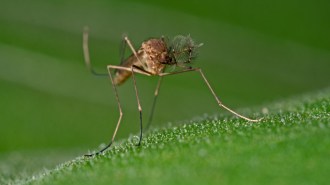 Animals
AnimalsMosquitoes infiltrated Iceland. Will they survive the winter?
Mosquitoes have reached Iceland, a place once thought too harsh for them to survive. Climate change may play a role in this shift.
- Chemistry
A new AI technique may aid violent crime forensics
An AI tool trained on chemical signatures from corpse-eating insects may help determine time and place of death for victims of violent crimes.
By Meghan Rosen -
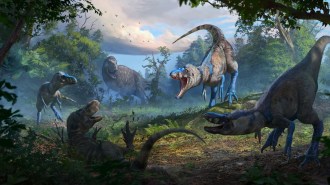 Paleontology
PaleontologyNanotyrannus was not a teenaged T. rex
A new Nanotyrannus fossil suggests the diminutive dino lived alongside T. rex in the late Cretaceous Period.
-
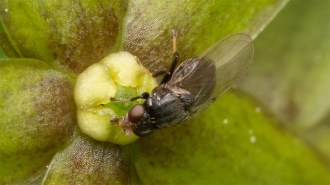 Plants
PlantsThis flower smells like injured ants — and flies can’t resist it
A type of Japanese dogsbane releases a scent identical to wounded ants’ distress signal, drawing in scavenging flies that unwittingly pollinate it.
- Animals
Deep Antarctic waters hold geometric communities of fish nests
Scientists found thousands of patterned fish nests in Antarctica’s Weddell Sea, boosting calls for marine protected areas.
By Carly Kay -
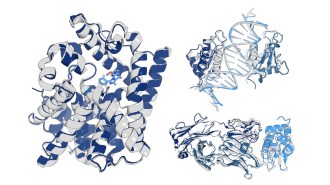 Artificial Intelligence
Artificial IntelligenceThe AI model OpenFold3 takes a crucial step in making protein predictions
The open-source AI model improves transparency in predicting how proteins interact with other molecules, which could speed up drug discovery.
-
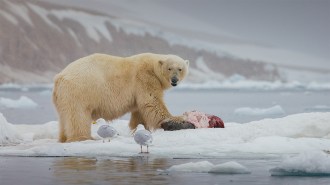 Animals
AnimalsPolar bears provide millions of kilograms of food for other Arctic species
A new study shows how much food polar bears leave behind — and how their decline threatens scavengers across the Arctic.